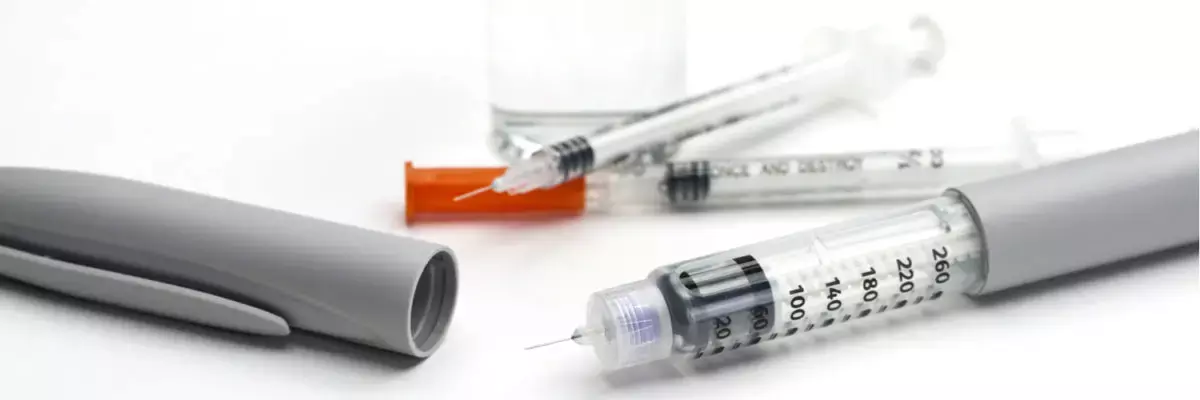- Home
- Medical news & Guidelines
- Anesthesiology
- Cardiology and CTVS
- Critical Care
- Dentistry
- Dermatology
- Diabetes and Endocrinology
- ENT
- Gastroenterology
- Medicine
- Nephrology
- Neurology
- Obstretics-Gynaecology
- Oncology
- Ophthalmology
- Orthopaedics
- Pediatrics-Neonatology
- Psychiatry
- Pulmonology
- Radiology
- Surgery
- Urology
- Laboratory Medicine
- Diet
- Nursing
- Paramedical
- Physiotherapy
- Health news
- Fact Check
- Bone Health Fact Check
- Brain Health Fact Check
- Cancer Related Fact Check
- Child Care Fact Check
- Dental and oral health fact check
- Diabetes and metabolic health fact check
- Diet and Nutrition Fact Check
- Eye and ENT Care Fact Check
- Fitness fact check
- Gut health fact check
- Heart health fact check
- Kidney health fact check
- Medical education fact check
- Men's health fact check
- Respiratory fact check
- Skin and hair care fact check
- Vaccine and Immunization fact check
- Women's health fact check
- AYUSH
- State News
- Andaman and Nicobar Islands
- Andhra Pradesh
- Arunachal Pradesh
- Assam
- Bihar
- Chandigarh
- Chattisgarh
- Dadra and Nagar Haveli
- Daman and Diu
- Delhi
- Goa
- Gujarat
- Haryana
- Himachal Pradesh
- Jammu & Kashmir
- Jharkhand
- Karnataka
- Kerala
- Ladakh
- Lakshadweep
- Madhya Pradesh
- Maharashtra
- Manipur
- Meghalaya
- Mizoram
- Nagaland
- Odisha
- Puducherry
- Punjab
- Rajasthan
- Sikkim
- Tamil Nadu
- Telangana
- Tripura
- Uttar Pradesh
- Uttrakhand
- West Bengal
- Medical Education
- Industry
Intermittent intensive insulin therapy may not help preserve beta-cell function in diabetes: Study

Canada: Intermittent intensive insulin therapy (IIT) is not feasible as a long-term strategy for preserving the function of beta-cell in early type 2 diabetes (T2D), finds a recent study in the journal Diabetes, Obesity & Metabolism.
"Although initial induction IIT induces metabolic improvement, subsequent repeat courses of IIT every 3 months do not further enhance the effect of metformin (MET) maintenance therapy on beta-cell function," wrote the authors.
Ravi Retnakaran, Division of Endocrinology, University of Toronto, Toronto, Ontario, Canada, and colleagues aimed to test the hypothesis that the addition of periodic courses of short-term IIT could enhance the effect of MET maintenance therapy on preservation of beta-cell function following induction IIT in the RESET-IT Main trial -- a multicentre, randomized controlled trial.
It included 108 adults with type 2 diabetes (median 1.3 years' duration; HbA1c 6.6% ± 0.6%). They were randomized to 3 weeks of induction IIT (glargine, lispro) followed by MET maintenance, either with or without periodic 2-week courses of IIT every 3 months for 2 years.
Beta-cell function was assessed by the Insulin Secretion Sensitivity Index-2 (ISSI-2) at an oral glucose tolerance test every 3 months.
Key findings of the study include:
- In both arms, induction IIT increased ISSI-2, improved whole-body insulin sensitivity and reduced hepatic insulin resistance.
- The primary outcome of baseline-adjusted ISSI-2 at 2 years was not improved by the addition of intermittent IIT (MET + IIT) and was slightly higher in the MET arm, with three additional beta-cell measures showing no significant differences.
- Baseline-adjusted HbA1c at 2 years did not differ between MET and MET + IIT (6.3% ± 0.1% vs. 6.4% ± 0.1%), with 32.6% of participants in each arm maintaining HbA1c of 6.0% or less at 2 years.
"These data suggest that, despite inducing initial metabolic benefit, short-term IIT does not reset the clock underlying the window of reversibility of beta-cell dysfunction in early T2D." wrote the authors.
"Thus, in practical terms, our findings do not support the use of intermittent IIT as a long-term strategy for preserving beta-cell function," they concluded.
Reference:
The study titled, "Short-term intensive insulin as induction and maintenance therapy for the preservation of beta-cell function in early type 2 diabetes (RESET-IT Main): A 2-year randomized controlled trial," is published in the journal Diabetes, Obesity & Metabolism.
DOI: https://dom-pubs.onlinelibrary.wiley.com/doi/10.1111/dom.14421
Dr Kamal Kant Kohli-MBBS, DTCD- a chest specialist with more than 30 years of practice and a flair for writing clinical articles, Dr Kamal Kant Kohli joined Medical Dialogues as a Chief Editor of Medical News. Besides writing articles, as an editor, he proofreads and verifies all the medical content published on Medical Dialogues including those coming from journals, studies,medical conferences,guidelines etc. Email: drkohli@medicaldialogues.in. Contact no. 011-43720751


